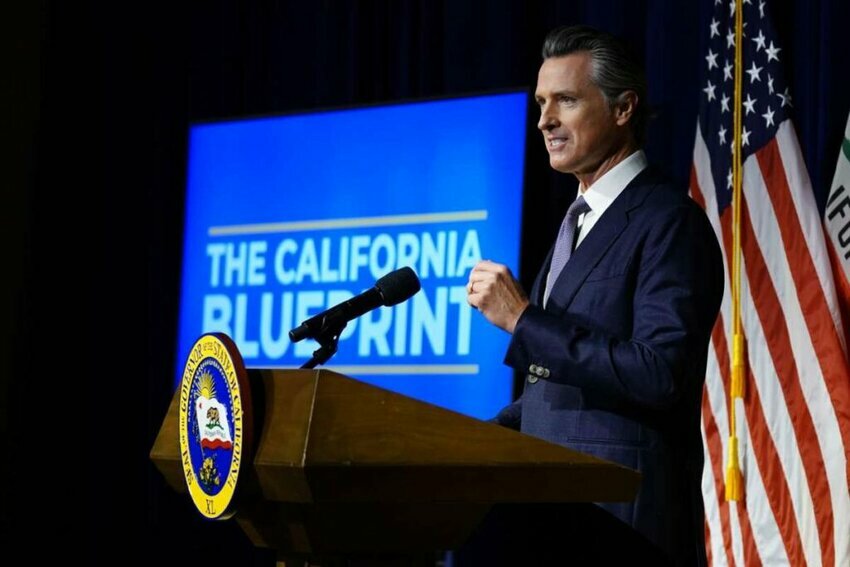 (Credit: Associated Press)
(Credit: Associated Press)Yesterday, the State of California released its 2022-23 Governor’s Budget, outlining the state government’s objectives, issue areas, initiatives, policies, and proposed fiscal allocations for the upcoming year. The budget is environment-centric, with Governor Gavin Newsom highlighting climate change and its associated challenges such as wildfires and droughts in California.
The section dedicated to climate change proposes allocating $22.5 billion over five years to climate solutions and adaptation, building on the $15 billion allocated to climate resilience in last year’s budget. With regard to transportation, which is responsible for half of the car-heavy state’s emissions, the budget earmarks funds for low-income subsidies of electric vehicle purchases and a build-out of EV charging stations. On the commercial end, it would fund 1,000 zero-emission drayage trucks and 1,700 zero-emission transit buses and allocate an additional $1.1 billion for zero-emissions trucks, buses, off-road equipment, and fueling infrastructure. Another $200 million is proposed for investing in sustainable trade innovations in the maritime, aviation, and rail sectors.
The next subsection addresses clean energy, which California will need to expand to meet its climate goals. Major investments include $380 million for battery storage of electricity, $100 million for green hydrogen, $210 million for industrial decarbonization, $85 million to help food producers transition to sustainable power, and nearly $1 billion for equitable building decarbonization via retrofit subsidies and consumer rebates. The budget also proposes a clean energy loan program “to provide pre-development financing for projects and technologies that focus on mitigating climate change in disadvantaged communities—geographic areas in which private capital has not adequately invested.” To incentivize climate action, the budget would allocate $250 million in tax breaks to California companies “working to mitigate climate change” and an additional $100 million to companies “developing green energy technologies.”
In the interest of reducing and repurposing waste, the budget allocates $65 million to initiatives such as waste-to-energy and recycling with the end goal of achieving a circular economy.
Initial reactions to the budget are positive, viewing it as a substantial action in combating climate change while supporting individuals and businesses. Katelyn Roedner Sutter, Senior Manager for U.S. Climate at Environmental Defense Fund, commented,
“With $22.5 billion in proposed climate-related expenditures, the budget is a demonstration of California’s climate leadership and will catalyze action beyond the state’s borders.”